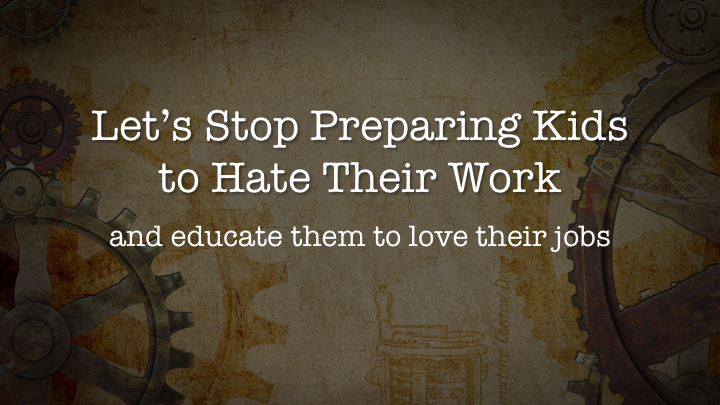This article contains a somewhat longer version of a TEDx talk I presented at TEDx PSUBerks on November 14, 2014. The chance to give a talk in this format was a great opportunity to for me to synthesize the different strands of my work over this past decade as an executive, an education advocate, and a mom. It let me get to the heart of what is most human for me inside our traditional institutions. And it was all inspired by the theme of a lovely TEDx: “Love and Education.” Videos from the event are being posted over time here. 4/20/2015 – Update: My video is now posted – see above. Unfortunately the sound quality is poor.
When my son was three, he did that thing. You know? Where he sat in a chair and started tipping it back on two legs? So what immediately came to my mind, of course, was “Stop That! You’re going to break your neck,” which would have been an overreaction, a lie, and really, an instinct to control my child for his own good and my peace of mind. So instead I got down to eye level with him, got his attention, and told him, “If you keep doing that there is a chance, a chance the chair will slip and you will fall down and hurt yourself.” I wanted him to have a realistic framework for thinking about risky behavior, and a framework for building trust.
My son and his sister are adolescents now and I worry about more than risky behavior. I worry whether the relationships they’re about to start developing are going to be healthy ones. I want them to feel deeply, in their bones, that respectful, accepting relationships are normal and that controlling, demeaning relationships are weird and wrong. So with far more love than know-how, I’ve stumbled through trying to raise them without all of the power imbalances that usually come with being a kid: They know it’s not polite for them to interrupt adults, but I’ve also taught them that it is not polite for adults to interrupt them. And that my desire to get the shopping done while I’m in the mood is no more valid than their desire to finish building that toothpick sculpture. So to whatever degree this philosophy may have had an effect, I may, I hope, have ruined my kids for controlling relationships










